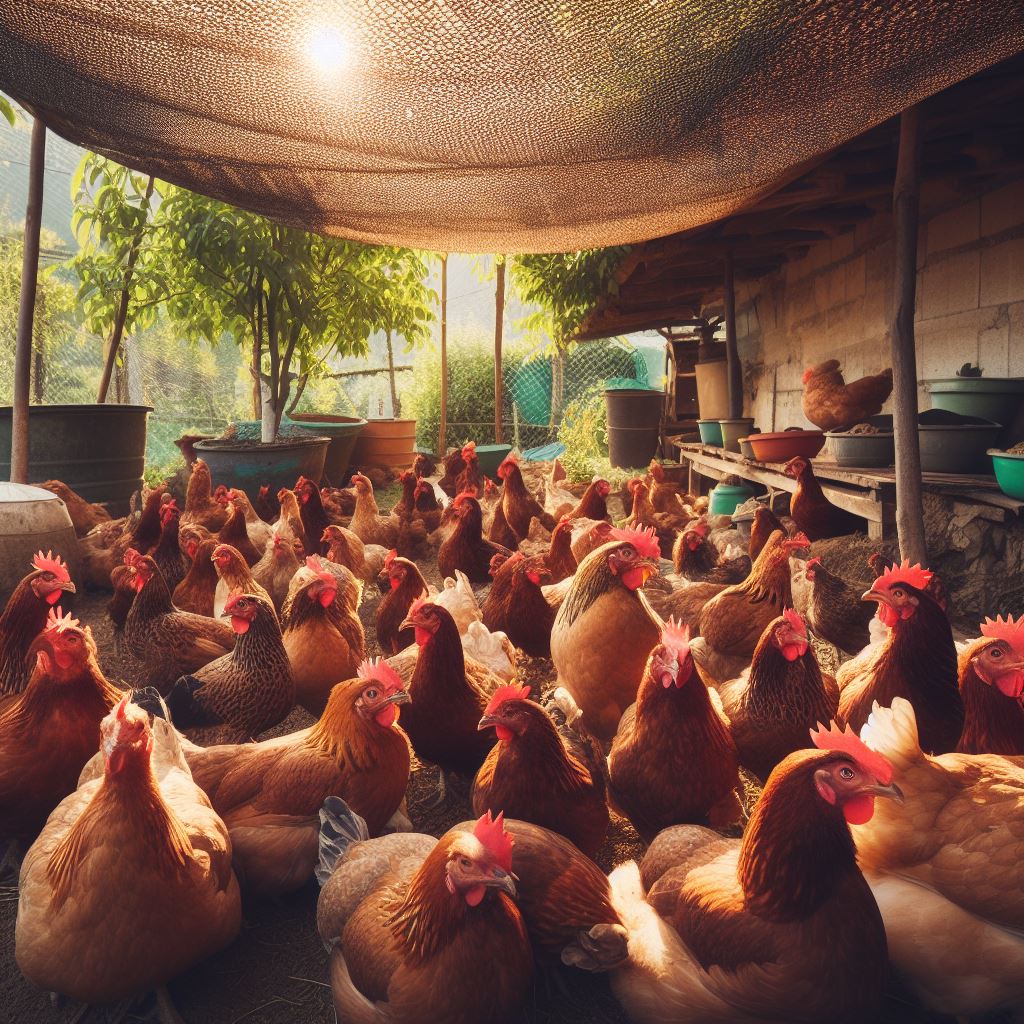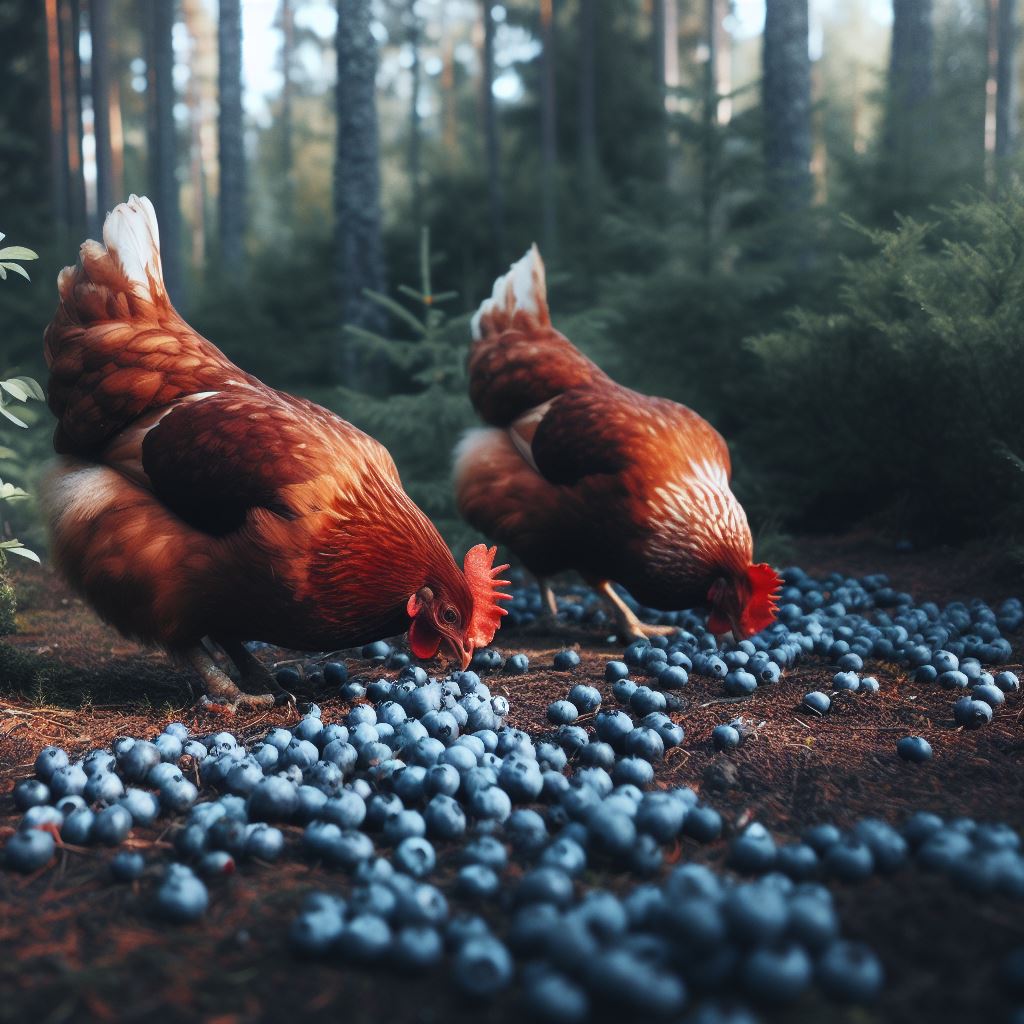Can Chickens Eat Coconut?

Table of content:
Coconut products like shredded coconut and coconut oil have gained recognition as superfoods for humans. It’s natural for chicken keepers to wonder whether their birds can also benefit from this tropical fruit. Coconut certainly sounds like a tasty treat, but is it safe? Can chickens eat coconut?
Benefits of Feeding Coconut to Chickens
So how does coconut fit into a chicken’s diet? Let’s look first at the potential benefits of feeding small amounts of coconut to backyard chickens.
Coconut Meat
The white flesh inside a coconut is referred to as the coconut meat or copra. About half of the fat in coconut meat comes from lauric acid, which has antiviral, antibacterial and antioxidant properties. The meat also contains medium chain triglycerides, which are easy for bodies to digest and convert to energy.
Coconut meat is low in protein compared to other treats like mealworms. But it can still provide a boost of nutrients like:
- Fiber
- Manganese
- Copper
- Selenium
In small amounts, coconut meat can be a tasty snack that provides dietary variety for chickens.
Coconut Oil
Coconut oil has grown in popularity for human health in recent years. Advocates tout its benefits for brain function, immunity, weight loss, and more. But what about for chickens?
Like the coconut meat, coconut oil is high in lauric acid. It contains over 90% saturated fat. But the types of fats (especially lauric acid) make it easier for bodies to metabolize than some other saturated fats.
Some chicken owners use coconut oil to help chickens with digestion or increase immunity. A few benefits chicken owners observe include:
- Healthy weight gain
- Shinier feathers
- Reduction of mites/lice
- Increased egg production
However, there is limited scientific research specifically on the benefits of coconut oil for chickens. The potential benefits need to be weighed against possible downsides.
An Occasional Treat
Used sparingly, both coconut meat and coconut oil can add some flavor and variation to a backyard flock’s diet. The high fat content provides concentrated energy. Many chickens seem to find the taste and texture appealing as well.
Chicken owners report their birds like shredded coconut sprinkled on top of feed or offered in a separate dish. Coconut oil can be stirred into feed, which helps disperse it evenly so each bird gets some.
Think of coconut as an occasional treat, not a daily habit. Too much of a good thing could lead to health problems. Moderation is key.
Risks of Feeding Too Much Coconut to Chickens
Coconut meat and oil do have benefits when used prudently. However, chickens cannot subsist on coconut alone. There are some potential downsides to feeding chickens too much coconut.
Weight Gain
The primary risk of overdoing coconut is its high fat content. Chicken’s bodies are not equipped to handle large amounts of fat well. Excessive fat can lead to obesity and liver problems.
Chickens generally do not need a high fat diet. Feeding large amounts of coconut could easily lead to unhealthy weight gain. This puts unnecessary strain on chickens’ bodies.
Digestive Upset
Too much coconut could also cause stomach upset for chickens. Their digestive systems are adapted for eating their natural diet of seeds, plants, and insects. High fat foods are harder to digest properly.
Some greasy droppings or loose stool can be a sign chickens are not tolerating too much coconut oil or meat. Fatty foods can lead to diarrhea or intestinal discomfort in chickens.
Individual Allergies/Intolerance
While most chickens seem to enjoy coconut in moderation, some individual birds may have difficulty digesting it. Coconut allergies are not common but certainly possible.
If a chicken shows signs of an upset stomach soon after eating coconut, it could signal an intolerance. Symptoms like diarrhea and lack of appetite may indicate the bird should avoid coconut.
Impacts on Egg Production
There is some concern that excessive phosphorus from feeding foods like coconut could negatively impact chickens’ egg production. Too much phosphorus can deplete calcium, which is essential for proper eggshell formation.
However, this is unlikely to be a problem if coconut is fed in small amounts as a treat. But routinely overfeeding coconut could decrease egg production in the long run. Moderation is key.
Feeding Recommendations for Coconut Treats
Chicken owners naturally want to share special foods like coconut with their feathered pets. Doing so safely comes down to moderation.
Here are some tips for successfully adding coconut to a backyard flock’s diet:
- Start with very small amounts like a tablespoon of shredded coconut or coconut oil mixed into feed.
- Slowly increase the coconut a little at a time over several days or weeks.
- Monitor the birds’ droppings, appetites, weight, and egg laying. Reduce the coconut if any issues arise.
- Limit coconut to a few times per week rather than every day.
- Use shredded coconut rather than offering large chunks. The fiber is difficult for birds to digest.
- Make sure chickens always have unlimited access to fresh water.
- Continue feeding a balanced commercial feed to ensure proper nutrition.
The key is paying close attention to how your individual chickens respond and adjusting as needed. Every bird is different. Some may tolerate more coconut than others. Be conservative at first and look for any adverse reactions.
Can Chickens Safely Eat Coconut?
In summary, chickens can eat coconut in moderation. Both the meat and oil provide healthy fats and nutrients. Many chickens relish the sweet taste as an occasional treat.
However, coconut is high in fat and phosphorus. Consuming too much could lead to obesity, digestive upset, decreased egg production, or allergies in susceptible birds. Routine overfeeding is unwise.
The best approach is to introduce coconut slowly, pay close attention to each bird’s response, and limit it to a few times per week. That allows chickens to benefit from the nutrients and variety while avoiding possible health consequences.
Moderation and monitoring are key when feeding treats like coconut. By keeping their unique needs in mind, chicken owners can safely share the benefits of coconut with their backyard flocks. Done prudently, chickens can enjoy coconut as part of a balanced diet.
FAQ About Can Chickens Eat Coconut?
Here are answers to some common questions about feeding chickens coconut:
Can chickens eat shredded coconut?
Yes, most chickens enjoy eating small amounts of unsweetened shredded coconut as an occasional treat. Introduce it slowly and monitor the bird’s droppings for any digestive upset.
Can chickens eat coconut oil?
Coconut oil is also safe for chickens in moderation. Many owners mix a teaspoon or so into feed as a supplemental fat source. Start with small amounts to see if the bird tolerates it well.
Should chickens eat coconut every day?
It’s best not to feed coconut daily, since the high fat content could lead to obesity. A few times a week is sufficient for chickens to get the benefits without overdoing it.
Can coconut oil increase egg production?
There’s limited evidence that small amounts of coconut oil boost egg production. It provides concentrated calories and nutrients for the bird. But too much could disrupt the calcium-phosphorus balance needed for proper eggshell formation.
Are raw coconuts safe for chickens?
Whole raw coconut is not recommended, as chickens can’t properly digest the tough fiber. Shredded coconut meat is safer and easier to digest.
Can too much coconut be toxic to chickens?
Extremely high amounts of coconut could theoretically cause toxicity from the fat or phosphorus overload. But this is unlikely in normal feeding scenarios. Negative health effects are more likely from weight gain.
Do chickens like the taste of coconut?
Most chickens appear to relish the flavor of coconut. The combination of fat, fiber and sweetness seems quite appetizing to birds. It’s a good way to add some treat variety to their diet.
Conclusion
Used prudently as part of a balanced diet, coconut can be a flavorful snack chickens enjoy. By starting slowly and monitoring for adverse reactions, owners can find the right amount to supplement their birds’ nutrition. Fed conservatively, coconut can give chickens a boost without endangering their health.
Yes, chickens can eat coconut meat and oil in moderation. When introduced to backyard flocks properly, coconut can be a safe and nutritious addition to a chicken’s diet.
Welcome. I’m Adreena Shanum, the proud owner of this website, and I am incredibly passionate about animals, especially poultry. I founded adreenapets.com as a labor of love, stemming from my desire to share my knowledge and experiences with poultry enthusiasts worldwide.




